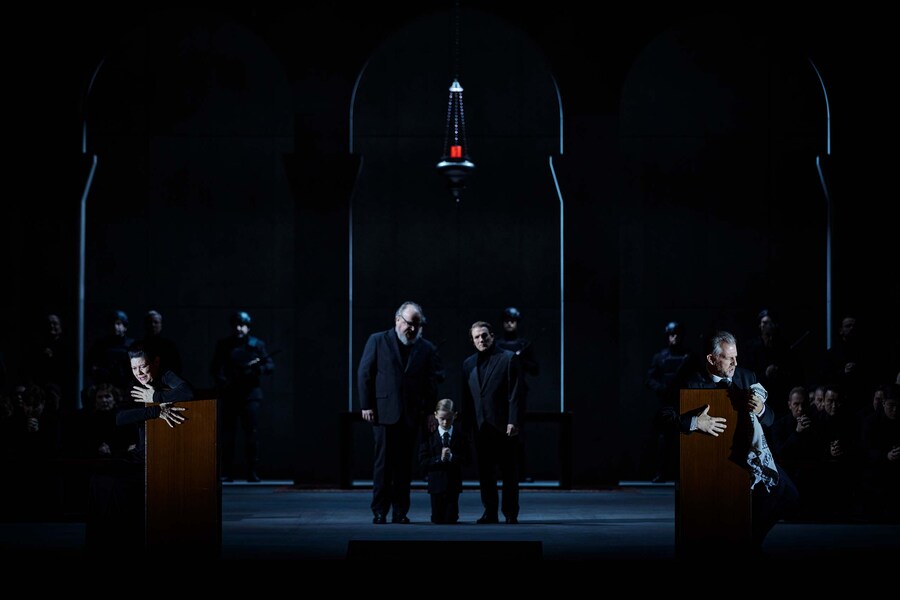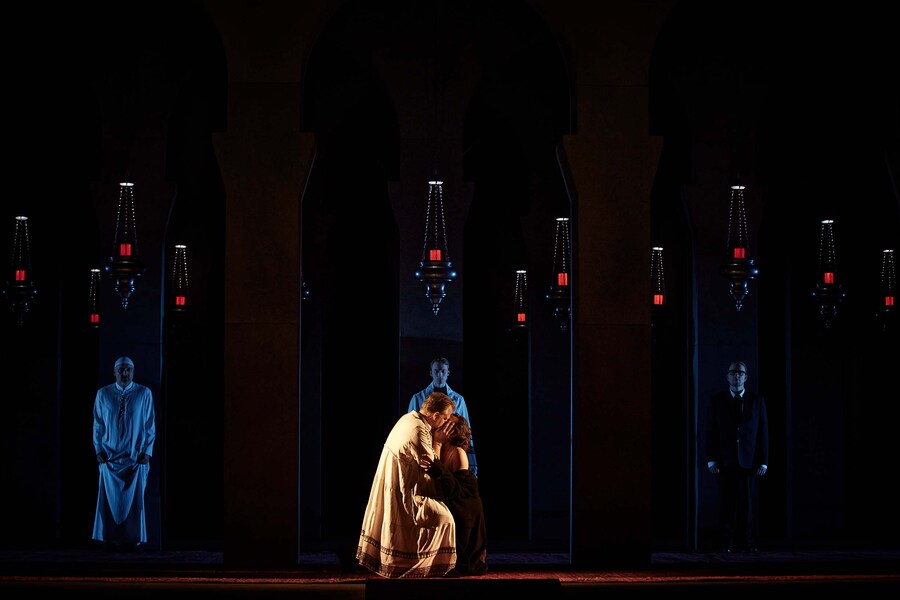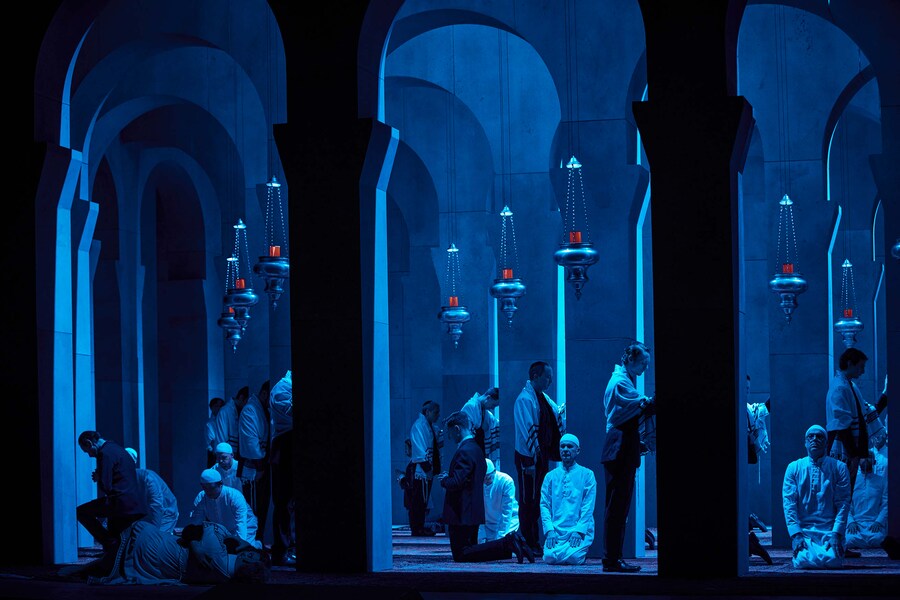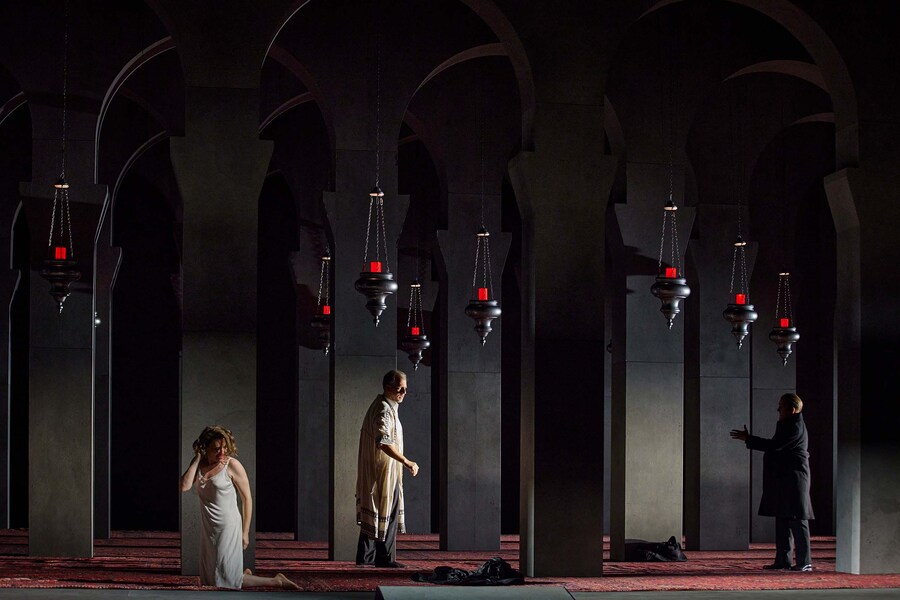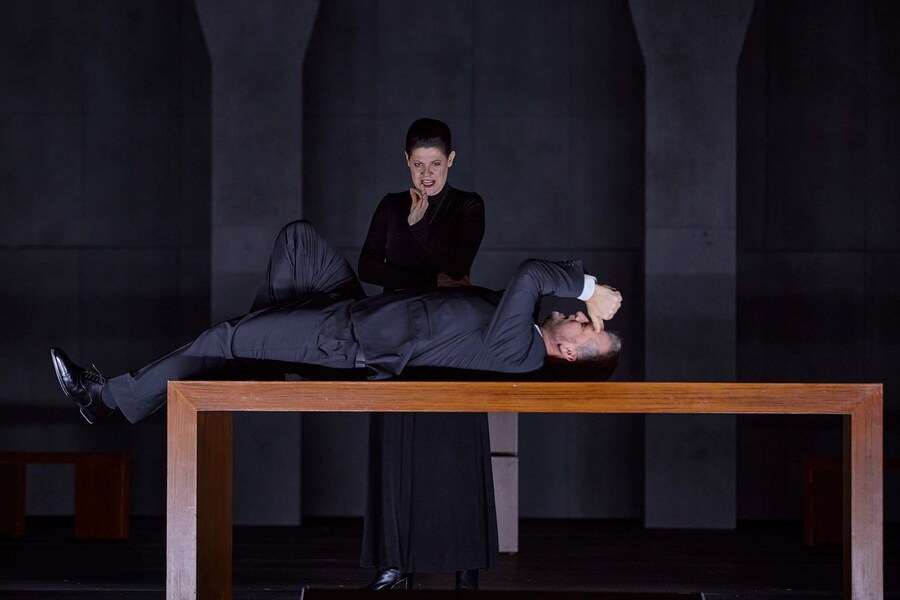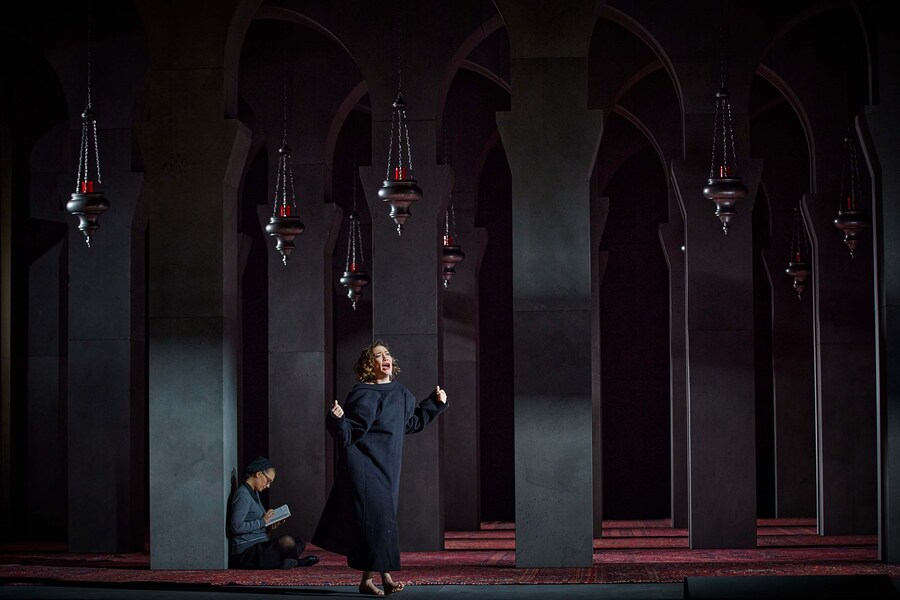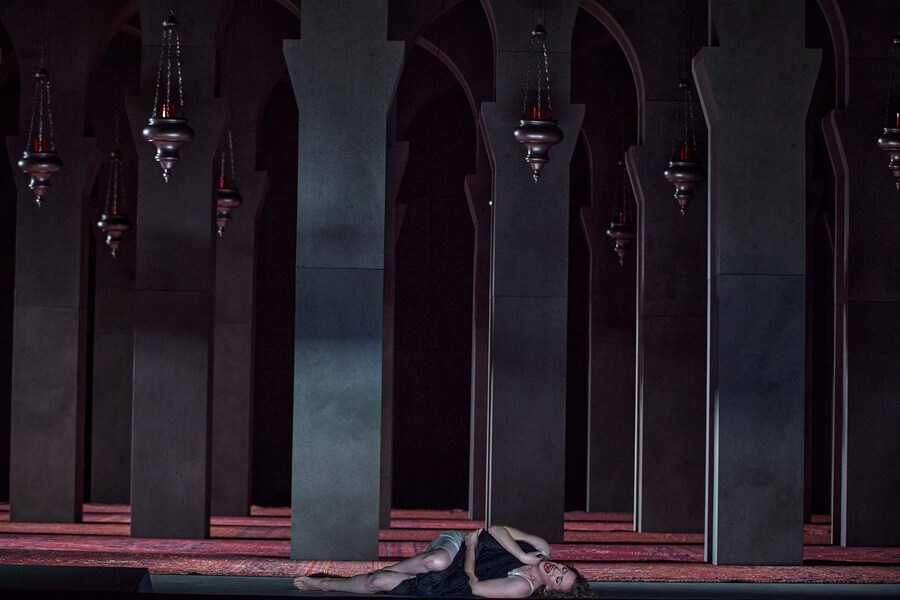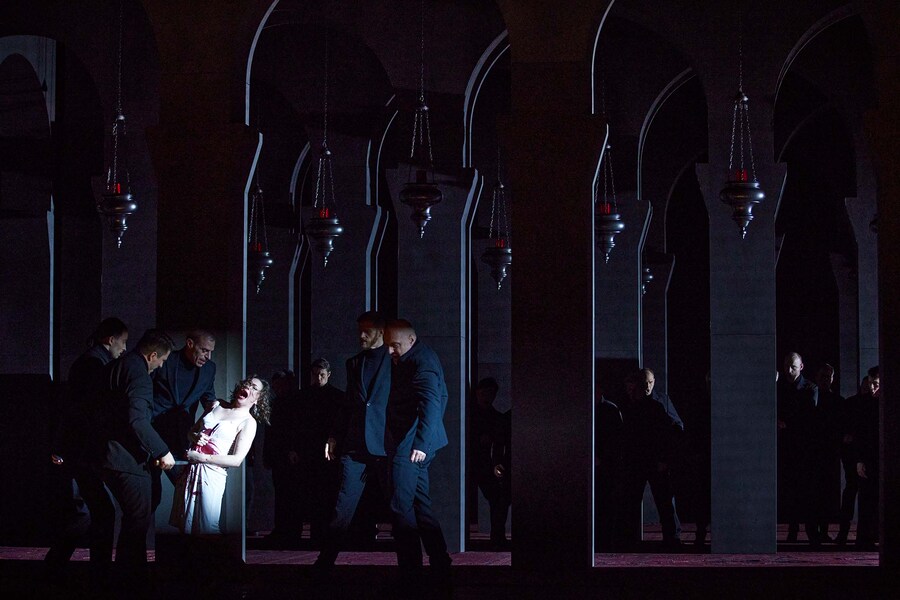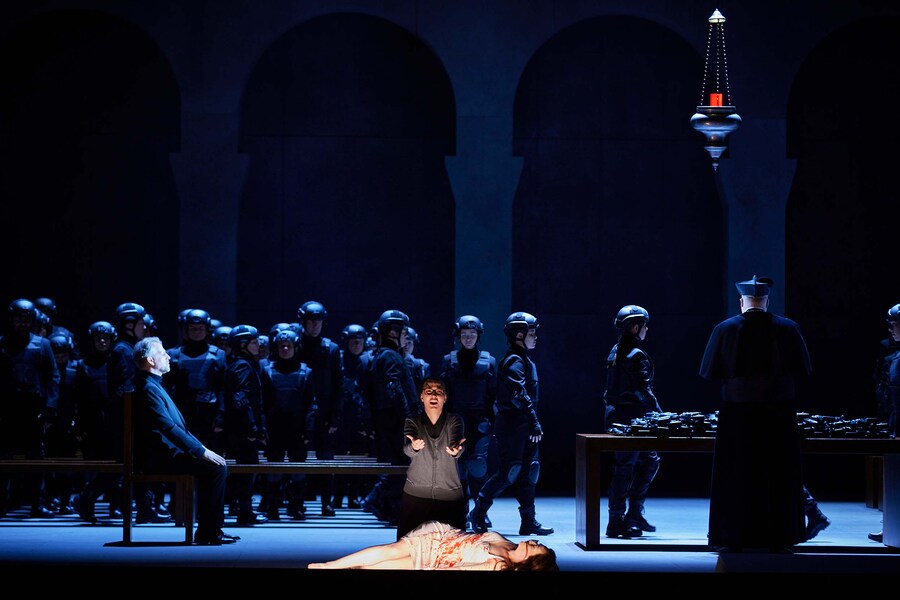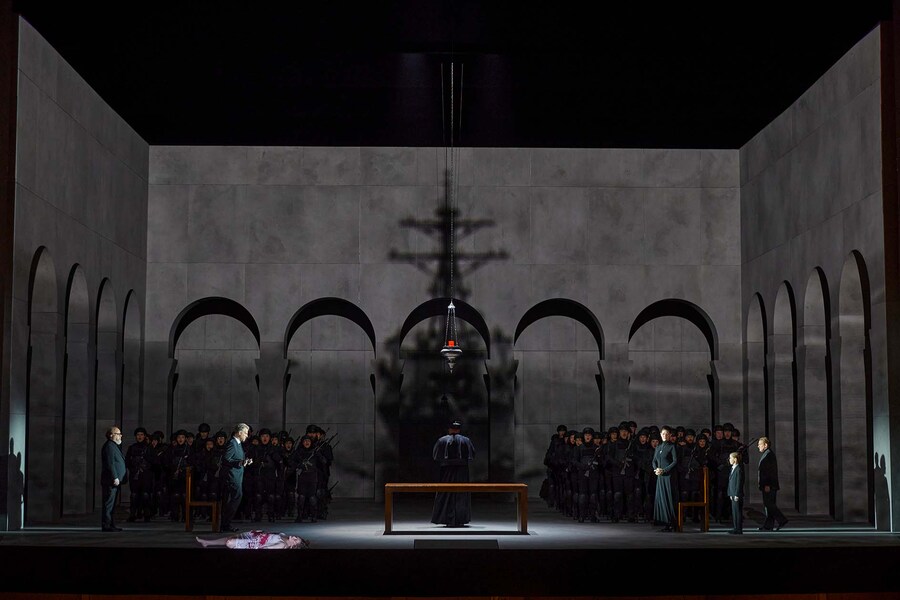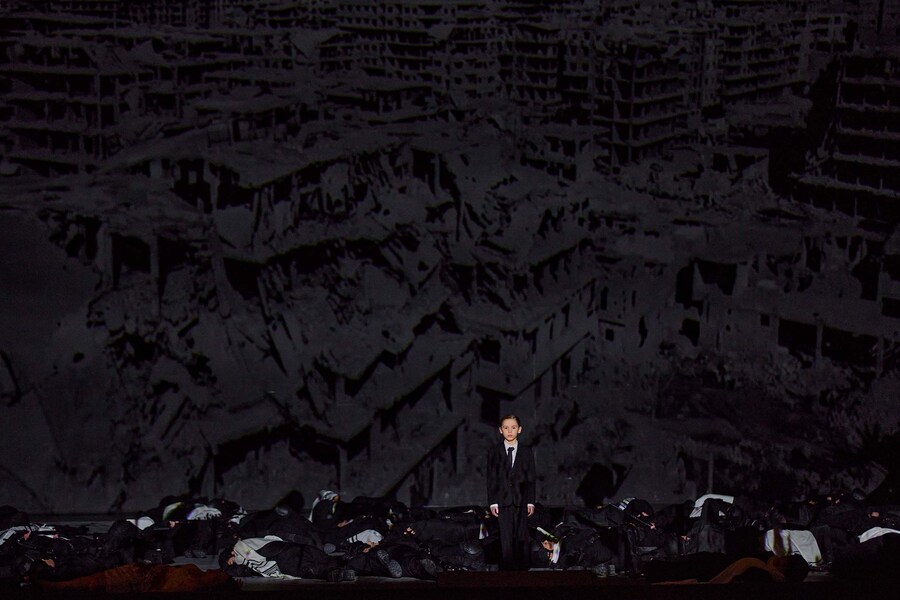World premiere. Opera in five acts
Libretto by Hans-Ulrich Treichel
Performed in German with German and English supertitles
Premiere
10. February 2024,
No further performances in the current season.
Premiere cast
- Komposition Detlev Glanert
- Libretto Hans-Ulrich Treichel
- Conductor Jonathan Darlington
- Staging Robert Carsen
- Set Design Robert Carsen, Luis F. Carvalho
- Mitarbeit Regie Gilles Rico
- Costume Design Luis F. Carvalho
- Lighting Design Peter Van Praet
- Videodesign Martin Eidenberger
- Choreography Marco Berriel
- Choir Jonathan Becker
- Dramaturgy Ian Burton, Martin Lühr, Benedikt Stampfli
- Rahel Heidi Stober
- Esther, deren Schwester Lilly Jørstad
- Alfonso VIII., König von Kastilien Christoph Pohl
- Eleonore von England, dessen Gemahlin Tanja Ariane Baumgartner
- Manrique, Graf von Lara Markus Marquardt
- Don Garceran, dessen Sohn Aaron Pegram
Sächsische Staatskapelle Dresden
Commissioned by the Staatsoper Dresden
Generously supported by the Semperoper Foundation
Explore
The Jewish Woman of Toledo
The Jewish Woman of Toledo
The Jewish Woman of Toledo – Making-of (4)
The Jewish Woman of Toledo – Making-of (2)
The Jewish Woman of Toledo – Making-of (1)
